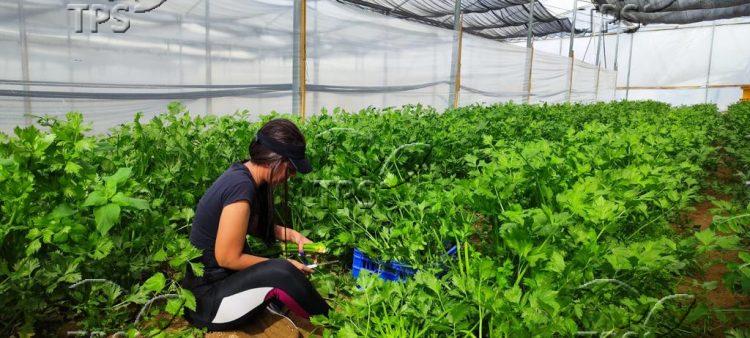Soldiers Mobilize to Battle Israeli Agriculture’s ‘Greatest Manpower Crisis’
Jerusalem, 5 December, 2023 (TPS) -- With Israeli agriculture facing staggering losses in production and manpower, the Ministry of Agriculture announced on Tuesday that 500 non-combat soldiers will be assigned to help farmers on a daily basis, to help meet a shortfall of workers.
“Agricultural work is a pillar in the spirit of Zionism based on the rootedness of the State of Israel. Special thanks to the Education Corps [of the Israel Defense Forces], without whose assistance and involvement the move would not have come to fruition,” said Oren Lavi, Director General of the Ministry of Agriculture
According to the ministry, before October 7, Israel had 29,900 foreigner working in agriculture, mostly from Thailand. Farmers also employed 10,000-20,000 Palestinian laborers depending on the season.
These workers planted and picked crops, or routine fertilizing or irrigation work in fields, orchards and greenhouses around the country.
But since the war began, the ministry said 10,000 of the foreign workers have returned to their home countries, and Palestinian areas are under a security closure. Israelis who might have filled the labor gap have instead been called up for reserve military service.
This has led to a shortfall of 30,000 workers, “the greatest manpower crisis” Israeli agriculture has experienced since the country’s founding, the ministry said.
According to the framework described by the ministry, non-combat soldiers who are not working on routine security will be connected to farmers in the southern and central areas who need assistance for a period of time long enough for the soldiers to specialize in the required agricultural work.
The ministry is exploring ways to expand the pool of volunteers from programs such as national service, pre-military preparatory schools, and religious yeshivas.
The Israeli government recently approved the entry of 5,000 foreign workers into agriculture and began offering incentives of thousands of shekels per month to draw Israelis to the agricultural sector.
Meanwhile, a survey released on Thursday found that farmers across Israel are facing decreasing produce and revenue. Because of security concerns, farmers near the Gaza and Lebanese borders cannot even reach many of their fields and orchards.
When asked to estimate their expected losses, farmers on average predicted a 35% drop in both production and revenue. Farmers near the Gaza border — regarded as Israel’s breadbasket — projected on average a 70% loss of produce and 69% loss of income.







